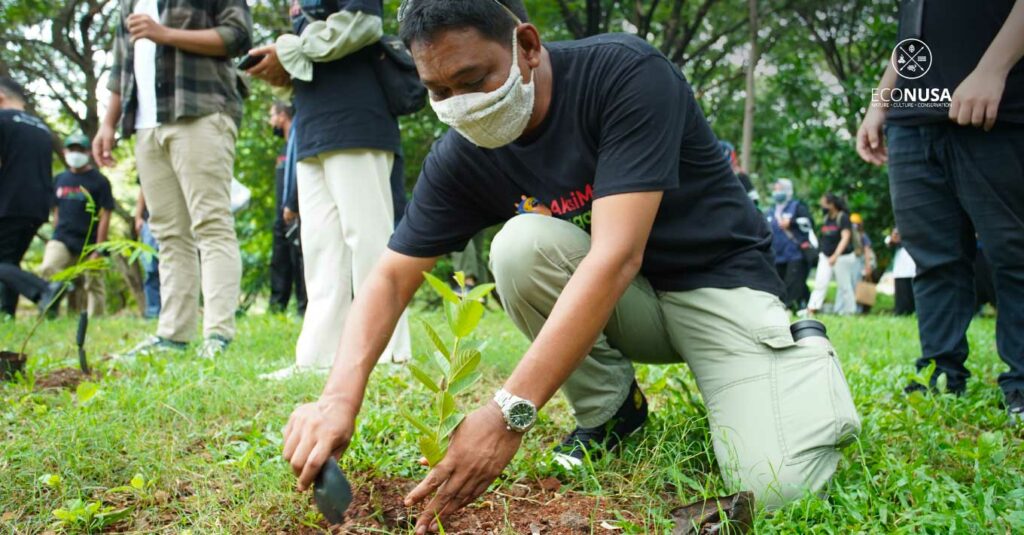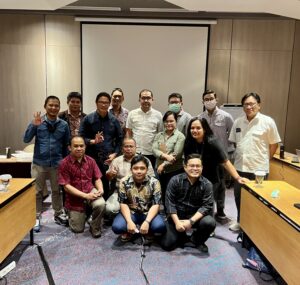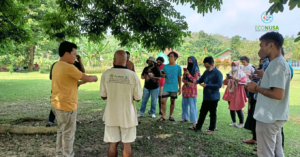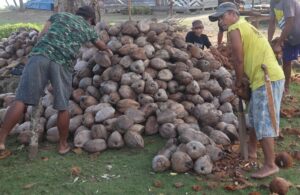
I took part in a workshop on strategic planning last March organized by the Interfaith for Rainforest Initiative-Indonesia (IRI Indonesia) in Tamblingan, Bali. IRI is an international interfaith alliance aiming to address moral voices and spiritual resource to a global endeavor to end tropical deforestation. This is a platform of religious-based leaders and communities to work hand in hand with the indigenous people, government, civil society, and business actors to participate actively in protecting tropical rainforest and those who have defended nature.
In Indonesia as the largest Muslim country in the world, IRI or an interfaith initiative for tropical rainforests was officially launched in the end of January 2020. More than 250 religious leaders gathered with indigenous peoples, NGOs, scientists, government, and the United Nations, at the Ministry of Environment and Forestry in Jakarta to build a commitment to protect the largest tropical rainforests in this planet. The release got serious supports from the Indonesian Ulema Council (MUI), Nahdlatul Ulama (NU), and Muhammadiyah. Religious leaders from Protestant Christian, Catholic, Hindu, Buddha, and Konghucu, and the Indigenous Peoples Alliances for the Archipelago (AMAN).
Considering the initiatives of religious society, I now feel not alone when struggling for environment, particularly in the eastern Indonesia. All elements now keep moving when climate crisis has affected all aspects of life. The great effort should go on.
Pope Francis stated that concern with environment is not to satisfy curiosity, but rather to build more awareness that what happens in the world today is the suffering of all people that seeks solution. The ecological destruction is triggered by global poverty, injustice, and consumerism. Nature is just deemed an instant consumptive satisfaction. Therefore, it needs solution from what we could do, no matter how trivial it is.
The holy month of Ramadan this year will also be a precious momentum to continue the commitment and concern to save forest and ocean resources which are under the looming threat. I am impressed with what Abdurrahman “Gus Dur” Wahid in 2006 who wrote that welfare and justice connection is part of Islamic teaching that should be performed in daily life. But justice and welfare has never been attained. Whereas, Indonesia has three remarkable natural resources, namely dense forests, mining and maritime resources mostly stolen nowadays. As to Gus dur, the failure to meet welfare and justice here is due to economic policy and regulation that tend to side with the well-off, instead of the public interests.
Apart from Gus Dur’s critique, I feel a bit relief when the Provincial Government of West Papua has just issued Governor Regulation No. 25/2021 on the Procedure of Recognition Designation of Indigenous People and Customary Land. With the policy, regency/mayoralty in West Papua does not need to draft any regulation on the designation and protection of indigenous people. Regent/mayor can directly establish a committee on indigenous people. With the policy that sides with public, there is hope that justice and welfare of indigenous people will be materialized.
Regarding the interfaith initiative, Pope Francis and Gus Dur’s statements here, I have more confidence that we should keep moving and mobilizing more people and policy makers to involve in environmental rescue. From the meeting in Bali, there is simple idea which involve houses of worship. In Indonesia, according to IRI, the religious country has 741,991 mosques, 12,743 Catholic churches, 43,909 Protestant churches, 7,129 Buddha viharas, and 24,431 Hindu temples.
With the large number of houses of worship here, it could organize a competition of eco-friendly house of worship to build a collective awareness. For instance, the category could be a house of worship which is free from plastic waste, using renewable energy, water management, tree planting. The competition could be a small step, but it will give significant impact to build a universal solidarity that leads to ecological awareness. The religious leaders are expectedly to call the involvement of young generations of each religion in Indonesia. They are the generations that will manage earth and environment legacy in the future.
I am so confident that building awareness and educating people to be responsible for environment will affect our surrounding world. Ecological concern and awareness are parts of faith of any religion. Faith should be manifested into daily life as a performance of religious rite. Hopefully, with this effort, the Islamic teaching of rahmatan lil alamin as blessing or love to the entire universe, will be materialized.
Bustar Maitar









